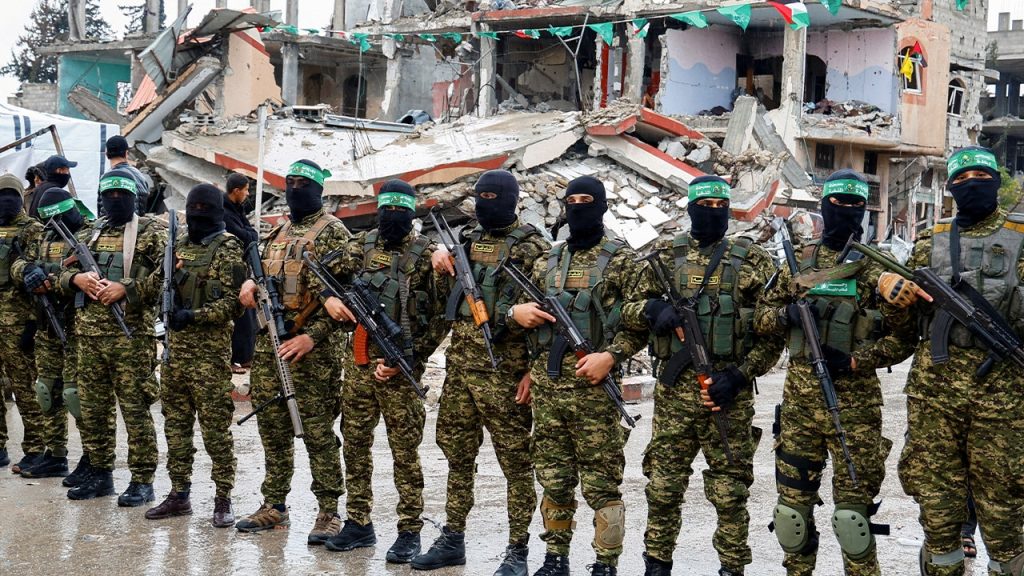Trump Issues Final Warning to Hamas for Hostage Release Deal
In a decisive move that underscores the urgency of the ongoing hostage crisis in Gaza, former President Donald Trump has delivered what he describes as his “last warning” to Hamas. Taking to his Truth Social platform, Trump urged the militant group to accept the terms of a deal that would secure the release of remaining hostages and potentially bring an end to the devastating conflict that has now stretched for nearly a year since the October 7, 2023 attacks.
The situation has reached a critical juncture with Trump stating that “Everyone wants the hostages HOME. Everyone wants this War to end.” He emphasized that Israeli authorities have already accepted his proposed terms, and the ball now lies firmly in Hamas’s court. The former president’s tone was unmistakably stern as he cautioned Hamas about “consequences” should they reject the deal, stating plainly, “This is my last warning, there will not be another one!” This represents a significant escalation in rhetoric from Trump, who just last month declared that hostages would only return when Hamas is “confronted and destroyed”—suggesting a hardline approach that may be evolving into a more concrete diplomatic initiative.
Behind the scenes, negotiations have faced significant hurdles. In July, both U.S. and Israeli negotiators withdrew from talks in Qatar after Trump’s envoy, Steve Witkoff, cited Hamas’s apparent “lack of desire to reach a ceasefire” and questioned whether the group was negotiating in good faith. The stalled negotiations have been particularly frustrating given Witkoff’s recent revelation on Fox News’s “Special Report” that a deal capable of releasing half of the estimated living hostages has been “on the table for the last six or seven weeks.” Witkoff placed the blame for the delay “100%” on Hamas, though he declined to specify exactly what was preventing progress. This impasse highlights the complex dynamics at play, with fifty hostages still in captivity, of whom only twenty are believed to still be alive after their abduction during Hamas’s attack nearly a year ago.
The timing of Trump’s ultimatum comes as Israel appears to be preparing for a significant military escalation. The Israel Defense Forces (IDF) has announced a new offensive targeting Hamas in Gaza under what they’ve termed “Operation Gideon’s Chariots II,” with warnings already being issued to Palestinian civilians in parts of Gaza City to evacuate ahead of expected strikes. These warnings specifically referenced buildings allegedly housing “Hamas terrorist infrastructure,” signaling Israel’s determination to continue its military campaign despite international pressure for restraint. This military preparation exists in tension with Trump’s late August prediction that the Gaza conflict would reach a “conclusive” end within “two to three weeks”—a timeline that seemed optimistic then and appears increasingly uncertain now as military operations intensify rather than wind down.
The humanitarian stakes could not be higher. With each passing day, the families of hostages endure unimaginable anguish, while civilians in Gaza continue to face displacement, destruction, and death. Trump’s intervention represents an attempt to break through a diplomatic logjam that has frustrated multiple international mediators. His approach combines public pressure with what appears to be behind-the-scenes negotiation, though the specific details of his proposed terms remain largely undisclosed. What is clear is that Israeli Prime Minister Benjamin Netanyahu has consistently maintained that only a comprehensive ceasefire—one that ensures the return of all hostages and ends the conflict on Israel’s terms—would be considered acceptable. Whether Trump’s proposal meets these criteria is uncertain, but his unequivocal language suggests confidence in the viability of whatever arrangement he has helped broker.
As the world watches this high-stakes diplomatic maneuver unfold, questions remain about how Hamas will respond to Trump’s ultimatum and what “consequences” might entail should they reject it. The militant group has previously shown willingness to engage in ceasefire discussions but has often attached conditions that Israel finds unacceptable. Similarly, Netanyahu’s government faces intense domestic pressure both to secure the hostages’ release and to achieve decisive military objectives against Hamas. This complex web of competing priorities has repeatedly stymied progress toward resolution. Trump’s intervention introduces a new dynamic to this deadlocked situation, but whether it will prove to be the breakthrough that brings hostages home and ends the bloodshed remains to be seen. What is certain is that time is of the essence—for the hostages, for civilians caught in the crossfire, and for a region desperately in need of stability after nearly a year of renewed conflict.


